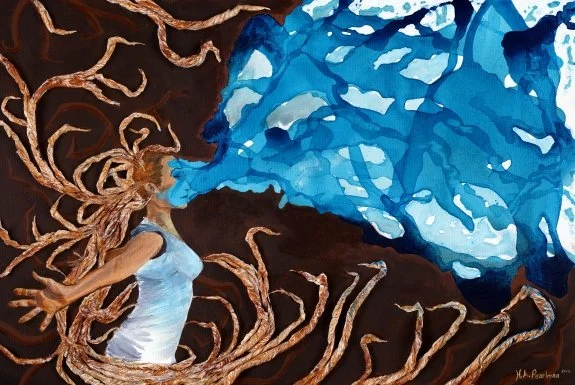Futuristic Slavery Narratives
Themes of slavery are prevalent in science fiction, and have been for decades. We have all acknowledged that humans can be evil and will take advantage of other humans, so we assume that we will do the same to robots, or aliens will do this to us. These narratives of slavery give us a chance to reflect on the history and impact of slavery while sparking hope for revolutionary thought when it comes to the oppressive conditions so many people still live under today. While some science fiction stories about slavery, like Blade Runner, seem to ignore the nuances of an issue with a past like that of slavery, stories like Walking Awake by N.K. Jemisin truly unpacks what it means to live in a society built on slavery, and how one can be complicit in it.
In Walking Awake, the main character, Sadie, is a “caretaker”, which means she raises children whose sole destiny is to have their bodies overtaken by a parasitic species referred to as the “Masters”. She is complicit in this breeding and raising of slaves, but one day she is shown what t would mean to be free, and her perspective on her entire world changes. She starts to have thoughts of revolution, something no human seems to have considered in decades, maybe centuries. She came to this revelation because one of the children whose body was overtaken managed to reach out to her. The story ends on a hopeful note, with Sadie about to sacrifice herself to save the entire human race.
This story empowers the reader to examine their place in society, attempts to wake them up to the fact that revolution is possible, even when all seems lost. While the world of walking Awake is clearly exaggerated, our wealthy, American society is similarly built on the backs of the poor. Comfort is almost always built on the discomfort or even abuse of others, and this is one story that examines the possibility of a complete revolution. It is screaming at the reader that we do not have to be complicit in the oppression. Many of us have the privilege and the power to be able to do something about what is happening in the world. This argument about complicity and revolution is what makes Walking Awake a clear work of Afrofuturism when works like Blade Runner are not. It is written by someone who wants to change teh world, not just comment on it.
